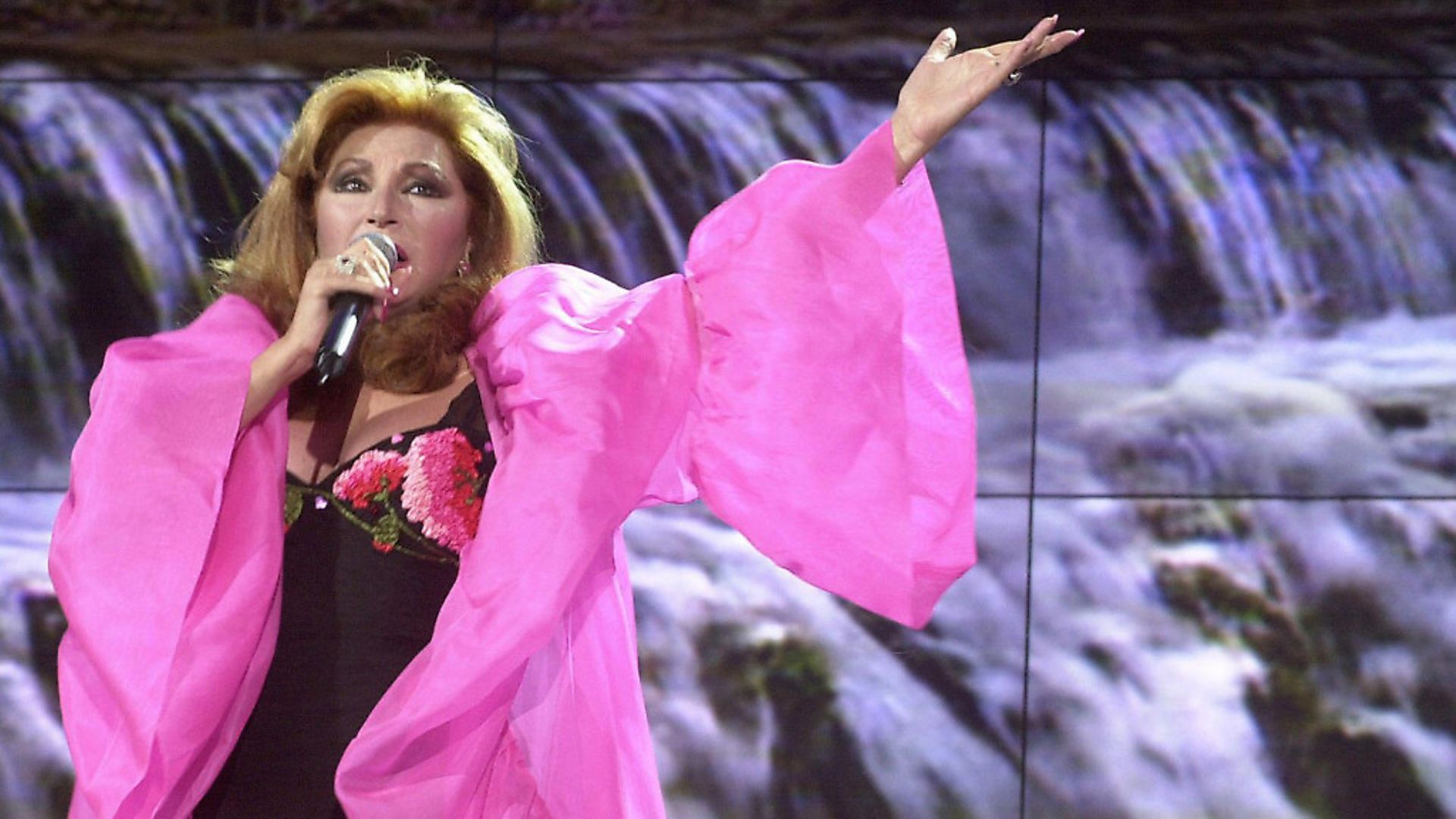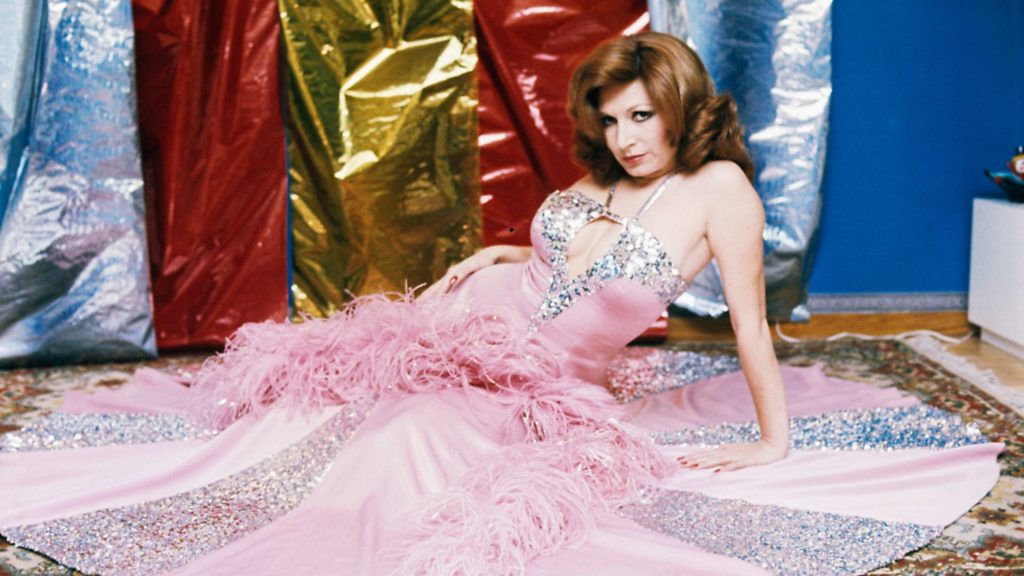
CHARLIE CONNELLY looks back on the life of Spanish singer, Rocío Jurado.

One evening in December 2005 Rocío Jurado lay on a couch in a dressing room at the Madrid studios of the Spanish television station TVE and closed her eyes. She was halfway through recording a concert special that would be her first public performance in almost two years and she was exhausted. Her absence from the stage had been down to receiving treatment for the pancreatic cancer that had killed her mother and that she’d accepted would kill her too, and soon. While her cancer was public knowledge there was no way she was going to admit how ill she was, especially not that night, not when some of Spain’s greatest musicians and singers had turned out in her honour. Rocío… siempre the show was called, ‘Rocío… Forever’, and that night she was determined to honour the immortality of the title.
‘I feel good, with a lot of hope,’ she’d told the press in the run-up to the recording. ‘My family, my friends and God are behind me. My faith is my walking stick, helping me to keep going.’
Thirty million record sales: she owed it to the public that adored her to make this show her best ever, even if it was to be a farewell. Rocío… siempre would run for two-and-a-half hours when broadcast shortly before Christmas but, television being television, the recording was taking much longer, spread over two tiring evenings. There was ample time to rest as sets were changed over and cameras re-set, but it was still taking a lot out of the singer known in Spain simply as la más grande, ‘the greatest’.
There was a knock at the door and Mónica Naranjo entered, a young singer who had been so overwhelmed by early success she’d withdrawn from public life altogether the previous year. Their duet on that night’s recording, Punto de partida, would be her first dip of the toe back into the business.
When she saw the star supine on the couch Naranjo’s face creased with concern. She’d grown up with this incredible presence, a voice and personality that almost personified Spain itself, yet here she was, lying on a couch, a frail and tired human being.
‘Rocío, you look exhausted’ she said. ‘Why don’t you go home? Everyone already knows you are the greatest, you have nothing to prove. You don’t have to do this.’
Jurado swung her legs to the floor and sat upright, fists balled on the cushions either side of her.
‘I do have to do this, Mónica,’ she said. ‘So many people from Chipiona have travelled to see me.’
There were more than 600km between Madrid and Chipiona, the little coastal town in Cadiz surrounded on three sides by the Atlantic that made Rocío Jurado. Her determination to see the recording through was fired as much by the thought of the journey endured by the friends and family sitting in the audience as anything else. That journey meant something to her. It was a journey that felt especially poignant that night.
Shortly afterwards she stood on the stage next to Naranjo, the band struck up the introduction and Jurado sang the opening lines of Punto de partida, ‘Point of Departure’, an appropriate choice in the circumstances, she thought.
Nearly half a century earlier Rocío Jurado had barely turned 16 when she made that journey from Chipiona to Madrid. The least she could do was give everything for the people who had followed her to this journey’s end.
She was born María del Rocío Trinidad Mohedano Jurado into a family steeped in the local flamenco scene. Her shoemaker father Fernando would organise intense nights of music and dancing, sometimes several nights a week at Rocío’s grandfather’s grocery shop. The swirl and stamp of the dancers in the lamplight and the sheer intensity of the music captivated the young Rocío as she peered from between her father’s legs. He encouraged her to sing and eventually coaxed his daughter into performing at these soirées, lifted onto the shop’s marble counter, a novelty at first but before long holding her audience’s attention by the power of her performance alone.
Fernando’s early death when Rocío was just 12 changed everything. She was quickly trained and sent out to work as a seamstress to help support her three siblings but she kept up the singing whenever she could, entering local competitions and winning so many she became known locally as ‘the girl with the prizes’.
In 1958, aged 14, she won first prize at the Tablao Álvarez Quintero flamenco venue in Seville in a competition broadcast live on Radio Sevilla. Her prize was 200 pesetas, a bottle of soda and a pair of stockings on a night that convinced Jurado she had found her calling.
Having outgrown the provincial circuit Jurado begged her mother and grandfather to allow her to go to Madrid to make a name for herself. When they refused, she embarked on a hunger strike that was into its tenth day when they realised she really meant it and relented.
The word of her talent had arrived before Jurado and it wasn’t long before she was presented to Pastora Imperio. A former dancer from Seville who had performed for kings, Imperio was the undisputed queen of flamenco. Jurado’s arrival in Madrid coincided with Imperio’s retirement from the stage at the age of 72 in order to open El Duende, a venue that would become the focal point of the national flamenco scene. It took only a couple of songs for Imperio to book Jurado for her new venue, commissioning outfits to make her appear older than her tender years.
Jurado was soon established as a major draw in the capital, singing a mix of flamenco and the traditional romantic ballad form caplas at prestigious venues such as Los Canasteros and Las Cuevas de Nerja, as well as becoming a fixture at El Duende.
Her live shows were about more than just the music. Audiences flocked to watch in awe as she threw every atom of her being into songs that seemed to come from somewhere deep within her. Jurado’s performances absorbed the intensity inherent in both flamenco and caplas and somehow amplified them, bewitching audiences with the emotional authenticity she put into each performance. One of her most famous songs, Como una Ola, ‘Like A Wave’, would see her moving her hands and body until she personified the swell of the ocean.
She became a huge star, not least when she abandoned traditional flamenco dress with mantilla headpiece and comb for loosened hair and glamorous outfits, even miniskirts, a particularly racy move in the conservative Spain of the 1960s.
With a string of successful albums and film roles in addition to her live shows, Jurado became almost the embodiment of Spanish womanhood. This would extend to her love life which featured marriages to quintessential Spanish males.
In 1975 she married the former world lightweight boxing champion Pedro Carrasco, ‘the sailor with the golden fists’, who had rescued Jurado when an over-adoring crowd rushed her at a charity bullfight. When that marriage failed she married José Ortego Cano, a champion bullfighter.
Tours abroad attracted huge crowds in South America and the Spanish-speaking parts of the US in particular, leading to a special performance for president Ronald Reagan at the White House in 1985. But 20 years later it was the musical pilgrims from her home town for whom she was determined to perform.
Walking from the dressing room to the stage she felt older than her 61 years but when the audience saw her silhouette in the wings and the applause began, she became more energised with every step she took into the spotlight. The music lifted her further, just as it had done on the counter of her grandfather’s shop decades before in the little town by the sea, and suddenly she was singing for her father, just as she remembered him, lit up by the music he loved that flowed through her even in this, her swansong.
Some 20,000 people filed past her coffin in the chapel of rest after her death, barely six months after Rocío… siempre. Spain’s deputy prime minister Maria Teresa Fernández de la Vega, said the entire nation mourned ‘a person who was so precious, so beloved, so respected and such an important part of the culture of our country’. The film director Pedro Almodóvar said simply, ‘women like her never die’.









